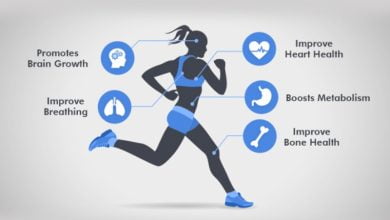Unlocking the Secrets to Successful Nutrition and Weight Loss Coaching: Your Ultimate Guide for Achieving Optimal Health and Wellness

Introduction:
Nutrition and weight loss coaching has emerged as a valuable approach for helping individuals achieve their health and wellness goals. By providing personalized guidance, support, and education, coaches empower clients to make sustainable lifestyle changes, improve dietary habits, and achieve weight loss in a healthy manner. This comprehensive exploration delves into the significance of nutrition and weight loss coaching, examining its principles, benefits, strategies, and outcomes.
Understanding Nutrition and Weight Loss Coaching:
Nutrition and weight loss coaching involves the provision of individualized guidance, support, and education to help clients make positive changes in their dietary habits, physical activity levels, and overall lifestyle. Coaches collaborate with clients to set realistic goals, develop personalized action plans, and overcome barriers to success. They provide evidence-based nutrition recommendations, behavioral strategies, and motivational support to facilitate long-term behavior change and sustainable weight loss.
Principles of Nutrition and Weight Loss Coaching:
Client-Centered Approach:
Nutrition and weight loss coaching is client-centered, focusing on the unique needs, preferences, and goals of each individual. Coaches tailor their approach to meet the specific dietary preferences, lifestyle factors, and health concerns of their clients, fostering a supportive and collaborative relationship.
Evidence-Based Practices:
Coaches rely on evidence-based nutrition principles, dietary guidelines, and behavioral strategies to guide their practice. They stay abreast of the latest research findings, nutrition trends, and weight loss strategies to provide clients with accurate, science-based information and recommendations.
Behavior Change Techniques:
Nutrition and weight loss coaching employs behavior change techniques to help clients adopt and maintain healthy habits. Coaches utilize strategies such as goal-setting, self-monitoring, problem-solving, and social support to facilitate behavior change and overcome obstacles to success.
Holistic Approach:
Nutrition and weight loss coaching takes a holistic approach to health and wellness, considering the interplay between nutrition, physical activity, sleep, stress management, and other lifestyle factors. Coaches address the underlying factors contributing to weight gain or obesity, promoting overall well-being and quality of life.
Long-Term Sustainability:
Nutrition and weight loss coaching emphasizes long-term sustainability and lifestyle change, rather than short-term fixes or fad diets. Coaches empower clients to develop sustainable habits, cultivate a positive relationship with food, and make lasting changes to support their health and weight management goals.
Benefits of Nutrition and Weight Loss Coaching:
Personalized Guidance:
Nutrition and weight loss coaching provides clients with personalized guidance, support, and accountability tailored to their individual needs and goals. Coaches work collaboratively with clients to develop realistic action plans, set achievable goals, and track progress over time.
Improved Dietary Habits:
Nutrition coaching helps clients improve their dietary habits by providing education, guidance, and support to make healthier food choices. Coaches empower clients to adopt balanced, nutrient-rich diets that promote health, weight loss, and overall well-being.
Sustainable Weight Loss:
Weight loss coaching promotes sustainable weight loss by focusing on behavior change, lifestyle modification, and long-term adherence to healthy habits. Coaches help clients establish realistic weight loss goals, develop strategies for managing cravings and emotional eating, and build a supportive environment for success.
Enhanced Motivation and Accountability:
Nutrition and weight loss coaching provide clients with motivation, encouragement, and accountability throughout their journey. Coaches offer ongoing support, feedback, and guidance to help clients stay motivated, overcome challenges, and stay on track towards their goals.
Improved Health Outcomes:
Nutrition and weight loss coaching can lead to improved health outcomes, including reduced risk factors for chronic diseases such as obesity, diabetes, cardiovascular disease, and metabolic syndrome. By promoting healthier eating habits, weight management, and lifestyle changes, coaching can contribute to better health and well-being.
Strategies for Nutrition and Weight Loss Coaching:
Initial Assessment:
Coaches conduct a comprehensive assessment of clients’ dietary habits, lifestyle factors, health history, and weight loss goals. They gather information about clients’ eating patterns, food preferences, physical activity levels, and barriers to success to develop personalized action plans.
Goal Setting:
Coaches collaborate with clients to set realistic, achievable goals that align with their health and weight loss objectives. Goals should be specific, measurable, attainable, relevant, and time-bound (SMART), providing clients with a clear roadmap for success.
Nutrition Education:
Coaches provide clients with evidence-based nutrition education, information, and resources to support healthy eating habits and informed decision-making. They teach clients about macronutrients, micronutrients, portion control, label reading, meal planning, and mindful eating practices.
Behavioral Strategies:
Coaches employ behavior change techniques to help clients overcome barriers, change unhealthy habits, and adopt healthier behaviors. Strategies may include self-monitoring, goal-setting, stimulus control, problem-solving, and social support to facilitate behavior change and weight loss.
Ongoing Support and Accountability:
Coaches offer ongoing support, encouragement, and accountability to help clients stay motivated and committed to their goals. They provide regular check-ins, progress assessments, and feedback to monitor clients’ progress, address challenges, and celebrate successes.
Outcome Measurement and Evaluation:
Nutrition and weight loss coaching outcomes can be measured using various metrics, including:
Weight Loss:
Weight loss is a common outcome measure used to assess the effectiveness of coaching interventions. Coaches track clients’ weight changes over time and monitor progress towards weight loss goals.
Body Composition:
Body composition analysis, including measurements of body fat percentage, muscle mass, and waist circumference, provides additional insights into changes in body composition and distribution resulting from weight loss coaching.
Dietary Habits:
Coaches assess changes in clients’ dietary habits, food choices, and eating behaviors to evaluate the impact of coaching interventions on nutrition-related outcomes. Surveys, food diaries, and dietary recalls may be used to collect information on dietary intake and adherence to nutritional recommendations.
Health Markers:
Health markers such as blood pressure, blood sugar levels, cholesterol levels, and other metabolic parameters can be monitored to assess improvements in health outcomes associated with weight loss and dietary changes.
Quality of Life:
Quality of life assessments measure changes in clients’ physical, emotional, and social well-being resulting from weight loss coaching. Clients’ perceptions of their overall health, energy levels, mood, and satisfaction with life can provide valuable insights into the impact of coaching interventions on quality of life.
Conclusion:
Nutrition and weight loss coaching offers a holistic and personalized approach to helping individuals achieve their health and wellness goals. By providing evidence-based guidance, support, and education, coaches empower clients to make sustainable lifestyle changes, improve dietary habits, and achieve weight loss in a healthy and sustainable manner. Through personalized goal setting, behavior change strategies, and ongoing support, nutrition and weight loss coaching can lead to improved health outcomes, enhanced well-being, and a better quality of life for clients.
Achieving Lasting Wellness: The Science and Strategies of Sustainable Weight Loss
Introduction:
In a world where fad diets promise quick fixes and rapid weight loss, the concept of sustainable weight loss stands out as a beacon of long-term health and wellness. Sustainable weight loss isn’t just about shedding pounds; it’s about fostering lasting habits, nurturing a positive relationship with food, and cultivating a lifestyle that supports overall well-being. This comprehensive exploration delves into the principles, strategies, benefits, and challenges of sustainable weight loss, empowering individuals to embark on a transformative journey towards healthier living.
Understanding Sustainable Weight Loss:
Sustainable weight loss is a gradual, methodical approach to achieving and maintaining a healthy body weight through lifestyle modifications that are realistic, maintainable, and health-promoting. Unlike crash diets or extreme measures that offer short-term results at the expense of long-term health, sustainable weight loss focuses on making sustainable changes to diet, physical activity, and behavior patterns that can be maintained over a lifetime. It’s a journey characterized by patience, perseverance, and a commitment to holistic wellness.
Principles of Sustainable Weight Loss:
Balanced Nutrition:
At the heart of sustainable weight loss lies a balanced and nutritious diet. This means consuming a variety of whole foods rich in essential nutrients, including fruits, vegetables, lean proteins, whole grains, and healthy fats. By prioritizing nutrient-dense foods and minimizing processed and highly refined options, individuals can fuel their bodies with the necessary nutrients for optimal health and weight management.
Caloric Balance:
Sustainable weight loss requires achieving a caloric deficit, where energy expenditure exceeds energy intake over time. This deficit can be achieved through a combination of reducing calorie intake (through portion control, mindful eating, and choosing nutrient-dense foods) and increasing calorie expenditure (through regular physical activity and exercise).
Gradual Progress:
Rome wasn’t built in a day, and sustainable weight loss doesn’t happen overnight. Rather than focusing on rapid, unsustainable weight loss, individuals should aim for gradual progress towards their goals. This involves setting realistic expectations, celebrating small victories along the way, and understanding that slow and steady wins the race.
Lifestyle Changes:
Sustainable weight loss isn’t just about what you eat; it’s about how you live. It involves adopting healthy lifestyle habits that support overall well-being, including regular physical activity, adequate sleep, stress management, and self-care practices. By addressing the root causes of weight gain and making positive changes to daily habits, individuals can create an environment conducive to sustainable weight loss.
Mindful Eating:
Mindful eating is a key component of sustainable weight loss, emphasizing awareness, presence, and intentionality during meals and snacks. By tuning into hunger and fullness cues, savoring each bite, and cultivating a non-judgmental attitude towards food, individuals can develop a healthier relationship with eating and make more mindful choices that support their weight loss goals.
Strategies for Sustainable Weight Loss:
Set Realistic Goals:
Start by setting SMART (Specific, Measurable, Achievable, Relevant, Time-bound) goals that align with your individual needs, preferences, and circumstances. Break larger goals down into smaller, actionable steps, and track your progress along the way to stay motivated and accountable.
Embrace Whole Foods:
Focus on incorporating more whole, minimally processed foods into your diet, such as fruits, vegetables, whole grains, lean proteins, and healthy fats. These nutrient-dense options not only provide essential vitamins and minerals but also help promote feelings of satiety and satisfaction.
Practice Portion Control:
Portion control is essential for managing calorie intake and supporting sustainable weight loss. Be mindful of portion sizes, use smaller plates and bowls, and pay attention to hunger and fullness cues to avoid overeating.
Stay Active:
Regular physical activity is crucial for both weight loss and overall health. Find activities you enjoy, whether it’s walking, cycling, swimming, or dancing, and aim for at least 150 minutes of moderate-intensity exercise per week. Incorporating strength training exercises can also help build lean muscle mass and boost metabolism.
Cultivate Consistency:
Consistency is key when it comes to sustainable weight loss. Make healthy eating and regular physical activity a priority in your daily routine, and strive to maintain consistency even when faced with challenges or setbacks. Remember that every healthy choice you make contributes to your long-term success.
Benefits of Sustainable Weight Loss:
Improved Health Outcomes:
Sustainable weight loss is associated with numerous health benefits, including reduced risk factors for chronic diseases such as heart disease, type 2 diabetes, hypertension, and certain cancers. By achieving and maintaining a healthy body weight, individuals can improve their overall health and longevity.
Enhanced Quality of Life:
Losing weight in a sustainable manner can lead to improvements in physical function, mobility, and overall quality of life. Individuals often experience increased energy levels, better sleep quality, improved mood, and enhanced self-confidence and self-esteem.
Long-Term Weight Management:
Unlike crash diets or restrictive eating plans, sustainable weight loss promotes long-term weight management and maintenance. By focusing on sustainable lifestyle changes and habits, individuals can avoid the cycle of yo-yo dieting and prevent weight regain over time.
Positive Psychological Effects:
Sustainable weight loss can have positive psychological effects, including increased self-confidence, self-esteem, and body image satisfaction. Achieving weight loss goals boosts morale and self-efficacy, empowering individuals to take control of their health and well-being.
Enhanced Self-Efficacy:
Sustainable weight loss requires individuals to take ownership of their health and make empowered choices that support their goals. By successfully navigating the challenges and obstacles along the way, individuals build resilience, confidence, and self-efficacy that extend beyond the scale.
Challenges of Sustainable Weight Loss:
Patience and Persistence:
Sustainable weight loss takes time, patience, and persistence. It’s important to understand that progress may be slow and nonlinear, and setbacks are a natural part of the journey. Maintaining a positive mindset and staying committed to your goals can help you overcome challenges and stay on track.
Changing Habits:
Sustainable weight loss requires making lasting changes to dietary habits, physical activity levels, and lifestyle behaviors. Breaking old habits and establishing new ones can be challenging, but with time, consistency, and support, these changes become ingrained and second nature.
Environmental Factors:
The modern environment is filled with food cues, temptations, and social pressures that can derail weight loss efforts. Learning to navigate these environmental factors and make healthy choices in various settings, such as at home, work, and social gatherings, is essential for long-term success.
Emotional Eating:
Emotional eating, or eating in response to emotions rather than hunger, can sabotage weight loss efforts and undermine progress. Learning to recognize triggers for emotional eating, develop healthier coping strategies, and cultivate self-awareness around eating behaviors is key to overcoming this challenge.
Plateaus and Setbacks:
Plateaus and setbacks are a common part of the weight loss journey and can be frustrating to navigate. It’s important to remember that weight loss isn’t always linear, and occasional stalls or fluctuations are normal. Staying focused on your long-term goals, adjusting your approach as needed, and seeking support when necessary can help you overcome plateaus and setbacks.
Conclusion:
Sustainable weight loss is not a destination but a journey—a journey towards better health, greater vitality, and enhanced well-being. By embracing the principles of balanced nutrition, gradual progress, lifestyle changes, and mindful eating, individuals can achieve
The importance of nutrition and weight loss coaching
When it comes to achieving optimal health and wellness, nutrition and weight loss coaching play a crucial role. Many people struggle to maintain a healthy weight and make sustainable lifestyle changes on their own. This is where a nutrition and weight loss coach can make all the difference. A coach provides the guidance, support, and accountability necessary to help individuals reach their goals and unlock their full potential.A nutrition and weight loss coach is not just a regular advisor. They possess the knowledge and expertise to design personalized plans that take into account an individual’s unique needs, preferences, and goals. They provide education and empower their clients to make informed choices about their nutrition and lifestyle. By working with a coach, individuals can overcome obstacles, develop healthy habits, and make lasting changes that lead to improved overall health and wellness.
Understanding the basics of nutrition and weight loss
Before diving into nutrition and weight loss coaching, it’s essential to understand the basics of nutrition and how weight loss occurs. Nutrition refers to the study of food and its impact on out
bodies. It involves understanding the macronutrients (carbohydrates, proteins, and fats), micronutrients (vitamins and minerals), and the role they play in our overall health.Weight loss, on the other hand, is the result of a calorie deficit. When we consume fewer calories than our bodies need, it starts using stored fat as an energy source, leading to weight loss. However, it’s important to note that weight loss is not just about eating fewer calories. It’s about nourishing our bodies with the right nutrients and creating a sustainable lifestyle that supports long-term weight management.
The role of a nutrition and weight loss coach
A nutrition and weight loss coach serves as a guide and mentor throughout your health journey. They have the expertise to navigate the complex world of nutrition and provide personalized recommendations based on your unique needs and goals. A coach not only helps you understand the science behind nutrition but also supports you in developing healthy habits and strategies for sustainable weight loss.One of the primary roles of a coach is to create a safe and supportive environment where clients feel empowered to make positive changes. They provide ongoing motivation, accountability, and encouragement to help you stay committed to your goals. Additionally, a coach can help you identify and overcome any barriers or challenges that may arise during your weight loss journey.
Setting realistic goals for optimal health and wellness
When embarking on a nutrition and weight loss journey, it’s crucial to set realistic goals. Setting unattainable goals can lead to frustration and disappointment, making it harder to stay motivated. A nutrition and weight loss coach will work with you to set achievable goals that align with your personal circumstances and preferences.These goals should be specific, measurable, attainable, relevant, and time-bound (SMART). For example, instead of setting a vague goal like “lose weight,” a SMART goal could be “lose 10 pounds in the next three months by following a balanced meal plan and exercising three times a week.” This goal is specific, measurable, attainable, relevant, and time-bound, making it easier to track progress and stay motivated.
Developing a personalized nutrition and weight loss plan
One of the key benefits of working with a nutrition and weight loss coach is the development of a personalized plan tailored to your needs. A coach will assess your current health status, dietary habits, and lifestyle factors to create a plan that works for you. This plan will take into account your food preferences, medical conditions, and any dietary restrictions you may have.A personalized nutrition and weight loss plan will typically include recommendations for calorie intake, macronutrient distribution, portion control, and meal timing. It may also incorporate strategies to address emotional eating, stress management, and mindful eating. With a tailored plan in place, you’ll have a roadmap to follow and a coach to provide guidance and support along the way.
Strategies for overcoming challenges and staying motivated
The journey to optimal health and wellness is not always smooth sailing. There will be challenges and obstacles along the way that may test your commitment and motivation.
However, with the right strategies in place, you can overcome these challenges and stay on track towards your goals.One effective strategy is to create a support system. Surround yourself with like-minded individuals who share similar goals and values. This could be a workout buddy, a support group, or an online community. By having a support system, you’ll have people to lean on during tough times and celebrate your victories with.Another strategy is to focus on the process rather than the outcome. While it’s important to have goals, placing too much emphasis on the end result can be demotivating. Instead, shift your focus to the small daily habits and actions that will lead to long-term success. Celebrate each milestone and recognize the progress you’re making along the way.
The science behind successful weight loss
Successful weight loss is not about quick fixes or fad diets. It’s about understanding the science behind weight loss and implementing evidence-based strategies. A nutrition and weight loss coach can help you navigate through the noise and separate fact from fiction.Weight loss occurs when there is a sustained calorie deficit. This means that you’re consuming fewer calories than your body needs for daily activities and functions. However, it’s important to strike a balance and not drastically reduce your calorie intake, as this can have negative effects on your metabolism and overall health.In addition to calorie deficit, successful weight loss also involves making healthy food choices. Opt for nutrient-dense foods that provide essential vitamins, minerals, and fiber while keeping you satisfied. Incorporate a variety of fruits, vegetables, whole grains, lean proteins, and healthy fats into your diet. Avoid highly processed foods, sugary beverages, and excessive consumption of added sugars and saturated fats.
Incorporating exercise and physical activity into your routine
While nutrition plays a significant role in weight loss, it’s important to also incorporate exercise and physical activity into your routine. Exercise not only helps burn calories but also improves cardiovascular health, builds lean muscle mass, and boosts overall well-being.When starting an exercise program, it’s essential to find activities that you enjoy and can sustain in the long run. Whether it’s walking, jogging, cycling, swimming, or dancing, choose activities that make you feel energized and motivated. Aim for a combination of cardiovascular exercises (such as brisk walking or running) and strength training exercises (such as weightlifting or bodyweight exercises) for optimal results.Remember, consistency is key when it comes to exercise. Start with manageable goals and gradually increase the duration and intensity of your workouts. If you need guidance or support, consider working with a fitness professional or personal trainer who can design a program tailored to your needs and goals.
The role of mindfulness and mindset in nutrition and weight loss
The mind-body connection plays a crucial role in nutrition and weight loss. Our thoughts, beliefs, and emotions can impact our eating behaviors, food choices, and overall relationship with food.Therefore, developing a mindset of mindfulness and self-compassion is essential for long-term success.Mindfulness involves paying attention to the present moment without judgment. It can help you become aware of your hunger and fullness cues, make conscious food choices, and develop a healthier relationship with food. Practice mindful eating by savoring each bite, eating slowly, and tuning into your body’s signals of hunger and satiety.In addition to mindfulness, cultivating a positive mindset is crucial for overcoming setbacks and setbacks. It’s natural to experience challenges and slip-ups along the way, but it’s important not to let them derail your progress. Instead of dwelling on past mistakes, focus on the lessons learned and use them as stepping stones for growth.
Tracking progress and making adjustments along the way
To ensure progress and make necessary adjustments, tracking your nutrition and weight loss journey is essential. This can be done through various methods, such as keeping a food diary, using mobile apps, or utilizing wearable devices.Tracking your food intake can help you identify patterns, track your calorie intake, and make adjustments as needed. It can also help you become more aware of portion sizes and the nutritional content of the foods you consume. Additionally, tracking your physical activity can provide insights into your energy expenditure and motivate you to stay active.Regularly review your progress with your nutrition and weight loss coach. They can help you interpret the data, identify areas for improvement, and make necessary adjustments to your
plan. Remember, it’s normal to experience plateaus or fluctuations in weight loss. By tracking your progress and making adjustments along the way, you’ll stay on track towards achieving optimal health and wellness.
The benefits of ongoing nutrition and weight loss coaching
While working with a nutrition and weight loss coach can be beneficial in the short term, the benefits extend far beyond the initial coaching period. Ongoing coaching provides continuous support, guidance, and accountability to help you maintain your progress and make sustainable lifestyle changes.A coach can help you navigate through different stages of your health journey, whether it’s overcoming plateaus, managing stress, or adapting to new challenges. They can provide ongoing education and keep you up to date with the latest research and best practices in nutrition and weight loss. Additionally, a coach can help you stay motivated and focused on your long-term goals.With ongoing coaching, you’ll have someone by your side who understands your unique needs and can provide personalized recommendations. They can help you fine-tune your nutrition and weight loss plan, make adjustments as needed, and celebrate your achievements along the way. The benefits of ongoing coaching extend far beyond weight loss, leading to improved overall health and well-being.
Finding the right nutrition and weight loss coach for you
Finding the right nutrition and weight loss coach is crucial for a successful and positive coaching experience. Look for a coach who is qualified, experienced, and has a track record of helping individuals achieve their goals. Consider their credentials, education, and areas of specialization.It’s also important to find a coach who aligns with your values and communication style. Schedule initial consultations or interviews to get a sense of their coaching approach and see if it resonates with you. Ask about their coaching philosophy, success stories, and how they tailor their programs to individual needs.Don’t be afraid to ask for references or testimonials from past clients. Hearing about others’ experiences can provide insight into the coach’s effectiveness and the level of support they provide. Remember, finding the right coach is a personal decision, and it’s essential to choose someone who makes you feel comfortable, understood, and empowered.
Resources for further education and support
In addition to working with a nutrition and weight loss coach, there are various resources available to further educate yourself and receive additional support. These resources can enhance your knowledge, provide practical tips, and connect you with a community of like-minded individuals.Books, podcasts, and online courses are excellent resources for expanding your understanding of nutrition and weight loss. Look for evidence-based resources written by reputable experts in the field. Joining online communities or support groups can provide a sense of belonging and accountability. These groups often share valuable insights, success stories, and strategies for overcoming challenges.Lastly, consider attending workshops, seminars, or conferences related to nutrition and weight loss. These events provide opportunities to learn from leading experts, network with professionals in the field, and stay up to date with the latest research and trends.
Conclusion
Unlocking the secrets to successful nutrition and weight loss coaching is a journey that requires commitment, support, and a personalized approach. By working with a qualified coach, you can gain the knowledge, skills, and motivation necessary to achieve optimal health and wellness. Remember to set realistic goals, develop a personalized plan, and incorporate strategies for overcoming challenges and staying motivated.Embrace the science behind successful weight loss, incorporate exercise and physical activity into your routine, and cultivate a mindset of mindfulness and self-compassion. Track your progress, make necessary adjustments, and consider the benefits of ongoing coaching. Find a coach who aligns with your needs and values, and utilize additional resources for further education and support.With the right guidance and support, you can unlock the secrets to successful nutrition and weight loss coaching and embark on a transformative journey towards optimal health and wellness.
Start your journey today and unlock your full potential for a healthier, happier you!




